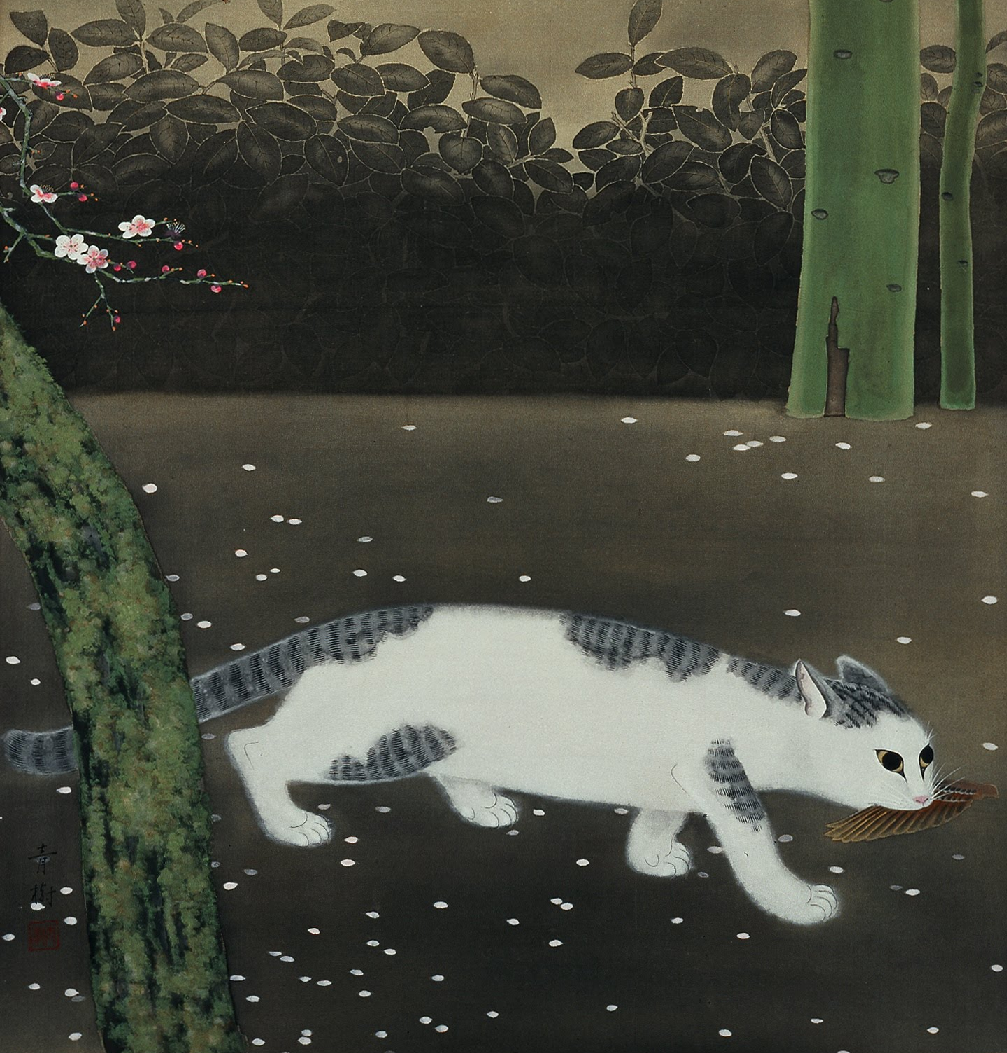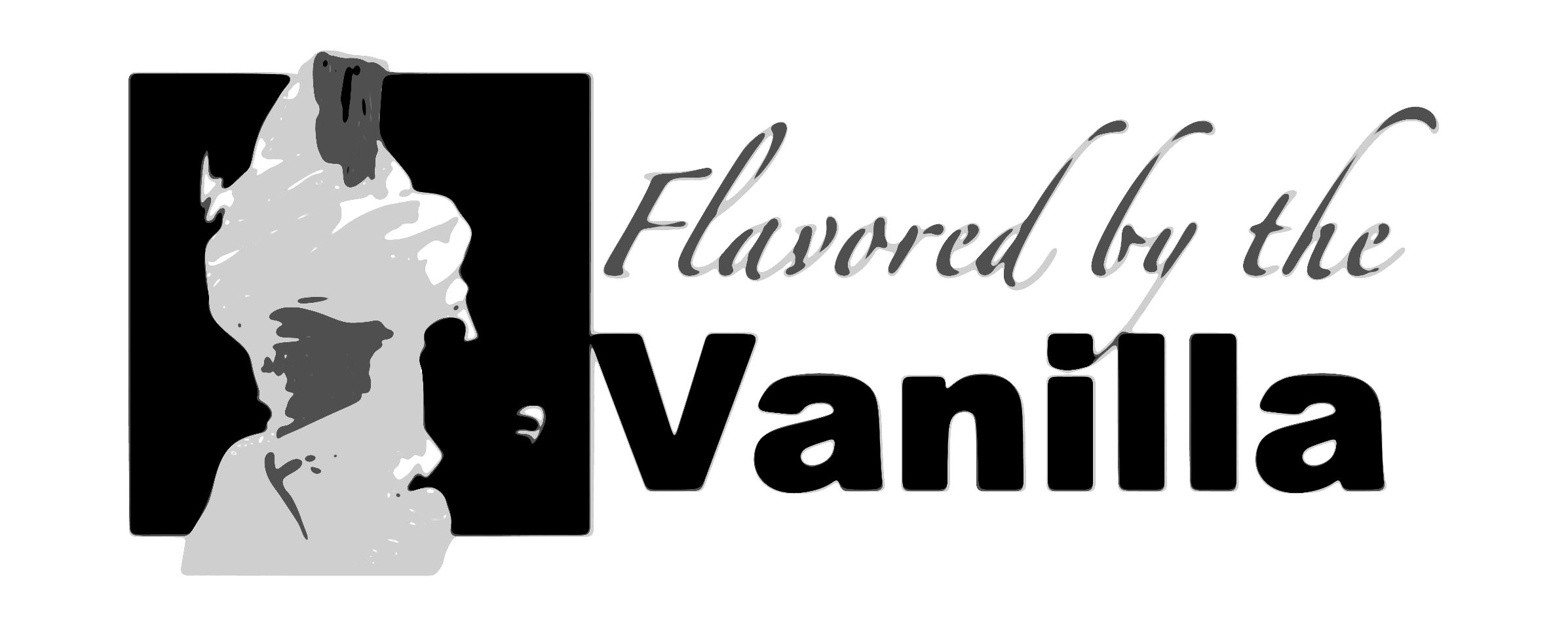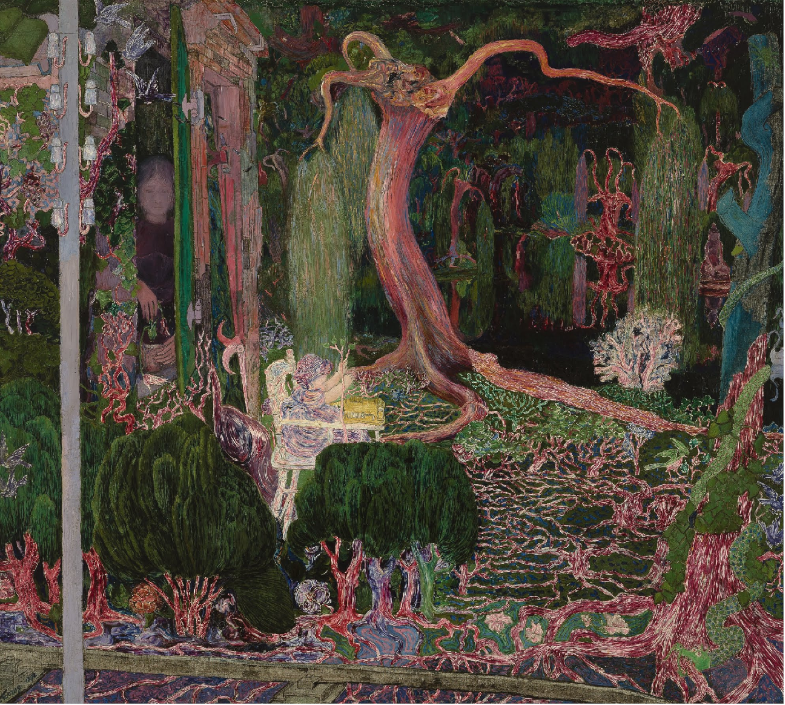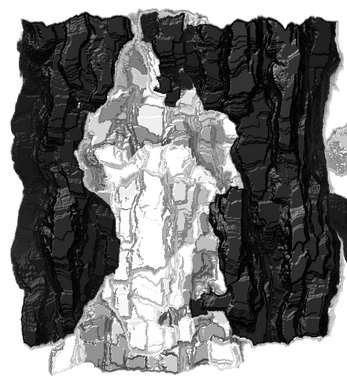(No) Compendium
A downloadable good decision
Credits
wand system, noita 2021 falling everything
tool paintings, lee lozano 1963 art institute of chicago
the vanilla game, jared 2021 spearwitch
Agreement
You agree to not hurt any person or people with this spell
To my best effort i have created a spell in html5, it should be usable on android smartphones an in the vanilla game. I searched the vanilla game using the find function for the word miss, and only found 3 results -- all of which were concerned with missiles.
I hope you will like this and have fun playing with this.
Please send actionable feedback if you have any problems or comments if you have any thoughts
This spell was created with love by: the only player who doesn’t need dice
Cover art by: Shibata Zeshin
Art by: OMODA Seiju, Stuart Davis, Gao Qifeng and Jan Toorop
Music by: Schwa Kyle and https://creatability.withgoogle.com/word-synth/
Jam by: D.M. Wilson
Hosting by: itch corp
Miss
Level 3, self, indefinite.
This spell causes this spell to fail.
Here is a list of d4 Fumbles:
Note: You can definitely use any list of fumbles for spells with levels.
| 0 | There is a hole.
|
|
| 1 | Open this, put something on, like a podcasting voice, and interview the last person to have rolled dice as if they wrote the contents of what you open. |
|
|
2 |
great |
|
|
3 |
|
|
|
4 |
Draw a card or take all your dice in damage |
|
|
5 |
A lit tea light |
|
|
6 |
Open wanderhome, turn to page 112, continue turning pages until you find yourself. You are now playing Wanderhome |
|
|
7 |
All dice roll their max values forever any dice rolling its max value is a token, all tokens are pieces of you |
|
|
8 |
This is the end |
|
|
9 |
Draw and discard cards, draw and discard your face and put all your dice in their places |
|
|
10 |
Everything except for the face and all tokens now look like one of those cards you keep telling yourself is going to save you , but never is. |
|
|
11 |
you must stop moving, stop dying, stop the spell |
|
|
12 |
The end - but this ends only when you have been sitting in a seat at a table reading rules for over 1 minute |
|
|
13 |
You must stop, it ends when the spell ends. This can happen if you draw your first die from the pool, a turn involving the spell finishes, if the spell ends or when the spell ends. |
|
|
14 |
When you go to the end you will be confronted with one of the following situations: |
|
|
||
|
15 |
[a number] |
|
|
16 |
Open a comic book and go to panel 17 |
|
|
17 |
Your GM is on your side… |
|
|
18 |
Your dice are
trapped inside your body. Stop and drop before rolling. |
|
|
19 |
|
|
|
20 |
draw dice on pieces of your body, use as gear bubbles, but when you do either nothing happens or your character loses the ability to use that piece of their body |
|
|
21 |
At the beginning of the spell, everyone permenantly crosses out one of their gear bubbles to save someone by doing something that character’s player did that day. |
|
|
22 |
draw a card anytime you say pieces of me in an artful way after someone else says pieces |
|
|
23 |
[photo of you] |
|
|
24 |
roll a mirror and describe your result |
|
|
25 |
Once this happens, no piece of you can be destroyed. |
|
|
26 |
every turn, after everyone has gone, a handwritten note is read by a character and then crossed out and another note is written and passed on to the next player. |
|
|
27 |
|
|
|
28 |
the next turn is [a message] you all pilot into the shape of spell from outside. The message can take any shape you like, but must be able to fit through a door. |
|
|
29 |
[a clock]-shaped marble [an animal] |
|
|
30 |
You have a lot of time to kill and you love your job. You sit at the desk in your office thinking. You realize that your coworkers love their jobs too and you’re happy that you do too. Then on the next page you find out you aren’t happy about this, for quite a while at least, because your job came, completed and went. |
|
|
31 |
a song for you. It will be about something. |
|
|
32 |
A word about a song for you. It will be a word about the same something. |
|
|
33 |
A special reference or at least a reference to something. |
|
|
34 |
An image for you, it will be not about what you think but about what others think of you. |
|
|
35 |
[your first word (you can phone a friend, the spell will wait)] |
|
|
36 |
[take a picture of an old tree] |
|
|
37 |
[sketch a landscape] |
|
|
38 |
add a picture of an old tree to a sketching of a landscape and pilot the tree together safely down onto the ground root by snapping root, creating the noise it makes and a hole in the canopy for other players to grow into |
|
|
39 |
That’s pretty much it. If you would like help (for instance, a public reading) I’m up for it. |
|
|
40 |
|
How to cast (optional but recommended)
Once you know the spell, it’s not going to take much time to get good at it. Just remember one rule: if your character dies, the spell continues for another turn, no matter what. If your character is absent, the spell continues (at this table, and the next). You can cast this spell and fail again at any time. If you can fail, you fail the cast.
I’m going to assume that you are casting this spell on a standard game table. It will be the same size as the full table at your local game store.
You cast this spell on its own time. It has its own table. That table hangs on the wall and ticks. You’ll have a book of spells, and you might need to grab additional ones if you lose yours or your chance to fulfill some goal or your character.
As a quick note to you, you are at risk of losing the game if you cast this spell in the wrong place.

Rules:
Use each of the seats for all the other players to be placed on and a spot for the “steal” seat to be placed on one end.
If a player has more than two seats of their own at the table, they put all of them at the end of the table and choose one.
You cannot steal a “Steal” seat.
When the spell begins, each player takes one spell and places it on the “Steal” seat(s).
If they put it in the wrong place, they lose that spell.
When any game ends, that player takes their total number of spells and places them on one end.
If they put them all in the right place, they take the “Steal” seat and any spells on it.
When this spell is cast, each player who wants to win has to place their hearts on the table and synchronize them by placing a ear on the table and listening until only one rate remains.

| Status | Released |
| Category | Physical game |
| Rating | Rated 4.7 out of 5 stars (3 total ratings) |
| Author | Shelves' Schwa |
| Tags | 2d-dnd, curiosity, glitch, loophole, phenomenon, recursion, underflow |





Comments
Log in with itch.io to leave a comment.
d0
0:
Non-player characters seem each to contain within itself a representation of the entire universe from its unique perspective. Or they don't.
NPCs act as singular monads unto themselves, each with its own inner mental life and perspective on the game world. Or else they exist only within the shared imagined space of the game, brought to life through the creative minds of the players. If both: you get an illusion of autonomous existence whose roles and actions depend intrinsically on the desires and choices of the players.
So let, for every me, i, say: these non-player characters reflect the Leibnizian idea that all monads mirror and represent the whole of existence — save in their own limited vantage. Though imaginary, they take on, like charge, a reality within the pretense of the game. Their purpose becomes to engage and react to the player characters, eliciting storylines and experiences desired by the players.
A non-player character that serves as a contrast or complement to a player character — in order to highlight or bring forth certain qualities, desires, or tendencies within that player character — gets you a foil.
0 (cont.):
According to Leibniz's monadology, each monad or substance expresses the entire universe from its own unique vantage point. A foil could act as a monad purposefully crafted to embody a perspective that is turning away from the perspective of a player's opposing monad.
Through this contrast between the subjective viewpoints of the player character and non-player character foils, certain latent aspects of the player's monad are elicited. The friction or discrepancy between these perspectives draws out internal potentialities, aspirations, or conflicts within the player's monad.
In this way, the foil serves as a conceptual counterpoint that stimulates the player's monad to express and unfold its nature. It functions as a dramaturgical device within the imaginary world of the game to actualize narrative elements that resonate with the player's subjectivity or will.
The foil provides an "outsider's glance" that helps the player's monad recognize its own unique essence. It acts as a conceptual mirror, revealing to the monad that which it could become, should choose to be, or desperately avoid being.
0 (cont.):
Whereas a foil serves as a reflective counterpart to draw out the latent interiority of a monad, an empty room symbolizes the absence of any external perspective or contrast.
A foil provides a constructed vantage point against which the monad defines itself. But an empty room removes any such external referent, leaving the monad alone with only its own self-conception and imaginative potential.
A foil actualizes one singular alternate viewpoint in dialectic with the player's monad. But an empty room is like a blank canvas, opening up an infinite possibility of perspectives, narratives, and subjective projections that could be manifested.
With a foil, the monad's identity crystallizes through opposition and tension with its counter-conception. But in an empty room, the monad's sense of self becomes diffuse, virtual, freed from anchors in any particular constructed narrative.
While a foil gives shape by providing boundaries, the empty room is protean in its lack of definition. It is both meaningless and imbued with all possible meanings by the observing monad.
So in contrast to the mirroring counter-definition provided by a foil, the empty room represents the monad's own infinite inner vista. It is the realm of pure imagination, where the monad is unconstrained by any preset narrative and able to manifest its deepest visions.
0 (cont.):
The empty room is the monad's workshop of potentiality. The foil is but one tool to sculpt subjective experience. The empty room allows unlimited tools and materials for creation. Or it don't.
Consider the nature of foils and the empty room within the context of monadology. As established, foils serve as conceptual counterpoints to player character monads, elucidating internal facets through contrast. They actualize singular alternate viewpoints, providing dialectic friction to draw forth latent potentialities. The foil's constructed subjectivity crystallizes the player's monad by oppositional definition.
Whereas foils give shape through counter-conception, the empty room is devoid of such external perspectives. With no narrative anchor, the monad's identity diffuses into pure imagination. Liberated from the constraints of preset roles, the empty room becomes the realm of unbounded creativity for the monad.
The foil represents the application of a particular tool to sculpt subjective experience. But the empty room provides the monad full access to unlimited tools and materials for manifestation. It is the workshop of potentiality, the blank canvas upon which the monad may author any narrative through its visionary faculty.
0 (cont.):
True self-cultivation for a monad comes not through friction with any single external foil, but rather through embracing the infinite inner perspective within the empty room of the mind. When a monad's lens is clear of preconceptions, it may glimpse its authentic nature. Foils act upon a monad; the empty room allows the monad to act upon itself.
This containerization of the empty room as an unbounded creative space for monads to manifest imagined narratives stands in stark contrast to the limiting nature of foils. Whereas foils actualize singular constructed perspectives to elicit meaning through opposition, the empty room liberates the monad from preset roles and allows for pure expression of its visionary faculty.
As established in previous sections, foils function as tools to shape subjective experience through dialectic friction with their counter-conception of the monad's identity. However, the empty room provides unlimited possibilities for self-authoring without the constraints of anchored narratives.
In this sense, the empty room aligns more closely with Leibnizian principles of monadic perspective - that each monad contains an infinite inner representation of the universe within its unique lens. The blank potentiality of the empty room permits the fullest possible manifestation of this innate subjective potential.
0 (cont.):
Therefore, we may qualify that for Leibniz, the empty room epitomizes the true workshop of creativity and enlightened self-cultivation, beyond the limitations of dialectic with any single external foil. It represents the monad's return to its inner authentic nature as an unbounded, imaginative force encapsulating all of existence within its singular expression.
Furthermore, Leibniz's views on the creative freedom of the empty room space can be extended to consider the role of non-player characters in actualizing subjective narratives. As explored previously, NPCs function as singular foils within tabletop roleplaying game constructs, helping to shape the player's expression of their monad's subjective experience through dialectic friction.
However, without the anchoring of predetermined NPC foils, the empty room environment allows the player's monad free reign over manifestation of NPCs as well. No longer constrained by a limited set of predetermined narrative possibilities, the monadic player may conjure any possible NPC perspectives, characters, and events within the empty room's blank potentiality.
Much as the empty room liberates the player's monad from the constraints of dialectic with a single foil, so too does it permit the imaginative creation of manifold NPC foils according to the player's vision. The empty room thus provides a creative workspace for the monad to author a fully-realized subjective world through manifestation of diverse NPC viewpoints and dramaturgy.
In this way, the principles underlying Leibniz's empty room concept align with his broader monadology. The empty room's blank canvas permits maximal actualization of this innate subjective complexity through imagined NPC interaction in service of the monad's self-expression.
Appendix A
More
The dictionary definition focuses on fantasy roleplay driven by game rules and chance. But the texts imply imagination need not be escapist - it can heighten our engagement with society. And rules/dice introduce unpredictability, but player creativity and ethics remain central.
Thus, tabletop RPGs facilitate collaborative trials of identity within bounded spaces. This process reveals multiplicity and interconnectedness, while avoiding total unselfing. Players project aspects of self onto roles, yet NPC interactions also externally reflect latent desires and conflicts. Though projection may raise imputation of qualities like agency, ultimately the game is an imaginative workspace for self-discovery, not literal embodiment. Or do they? (continue this thread…)
While fantasy scenarios can provide escapist entertainment, the shared storytelling also functions as metaphorical exploration of relationships and society. Rules introduce chance yet guide inquiry, while keeping player creativity primary. Or does it? (continue this thread…)
Tabletop roleplaying games constitute constrained workshops for identity play. This collaborative imagining can foster self-knowledge and empathy without branding or embodying a single self. RPGs thus craft spaces of guided imagination that illuminate the human experience. Or do they? (continue this thread…)
Tabletop RPGs reveal identity as multifaceted and fluid, not a singular fixed brand. By temporarily inhabiting fictional personas, players rediscover the diversity within themselves. PC interactions with imaginatively fleshed-out NPCs further reflect the self’s heterogeneous possibilities. Or do they? (continue this thread…)
Rules, chance elements, and gamemaster scenarios constrain yet focus collaborative imagining in RPGs. Unlike branding, this structure guides creative identity exploration rather than limiting it. The game’s constraints introduce unpredictability yet keep player agency primary. Or do they? (continue this thread…)
RPGs use fantasy and imagination not as escapism, but as a metaphorical language to better grasp relationships and society. Players gain emotional investment in fictional scenarios that then provide insight into the human condition. Imagination becomes a path to greater empathy and wisdom. Or does it? (continue this thread…)
By externalizing inner conflicts through NPC interactions in a low-stakes fictional space, RPGs allow players to safely encounter and integrate otherwise hidden aspects of self. The game becomes a crucible for catalyzing self-discovery through roleplay. It involves shared worldbuilding, not singular authorship. Meaning emerges through the interplay of multiple player perspectives. This models identity as co-constructed, woven from collaborative imagination. Unless it's not. (continue this thread…)
A shelf of games is a shelf holding technologies of the self-structured spaces for collaborative transformation. These imagination experiments subvert fixed identities, revealing us as co-authored perpetually in revision. The only limitation: permissions granted. Can it be? (continue this thread…)
Appendix B
Systemic Loyalty
As a carnivalesque inversion of branding's commodification of identity, the game state leaves liberated from online self-marketing players rediscovering play's sacredness.
Gaming frees identity from profit's narrowing matrices. The table redraws the map of being, rekindling lost existential pursuits. Stats, only there as ritual — to meet an equal and disperse. By uprooting us from habitual roles, RPGs expose identity's own rituals. We roleplay new possibilities of self and society, spirit and spirituality.
Unlike social media's dopamine treadmill of self-optimization cruxing virality, gaming fosters collective liberation approaching stillness. Here we roleplay the democracy we deserve into the state we don't.
RPG creativity guided by surprise creates fractures in the geode of the branded self. We glimpse self's broader vistas, resacralized.
Gaming has no winners, only co-existers mapping psychocartographic machinations. We are charged, to identity's continuum, reconnected.
Appendix C
Glossary of Terms
Monads and Foils
Monads are indivisible substances that each express the entire universe from their subjective viewpoints.
Foils are constructs that provide contrast to player character monads, revealing latent aspects through tension.
Foils reflect monadic perspectives back to the player for self-discovery.
The Empty Room
The empty room is a space devoid of predetermined constraints and narratives.
It allows free manifestation of monadic imagination and creativity.
The empty room represents a blank canvas for actualizing inner potential.
Blurring PC/NPC
In collaborative storytelling, PC and NPC roles can blend together.
NPCs can exhibit depth and agency, while PCs engage internal conflicts through external world foils.
This interplay elicits nuanced exploration of identity and desires.
Personalized Character Stats
Personifying PC stats and abilities as NPCs allows for embodied interactions.
Conversing with these inner facet characters provides self-reflection.
Externalizing and nurturing PC strengths and flaws manifests the player's aspirations.
Eliciting Latent Desires
Co-creative tabletop RP reveals players' unspoken needs and conflicts.
Roleplaying choices directly or symbolically engage with identity.
Games craft bespoke possibility spaces to actualize subjective passions and potentials.
Appendix D
[beating up the corpses again]